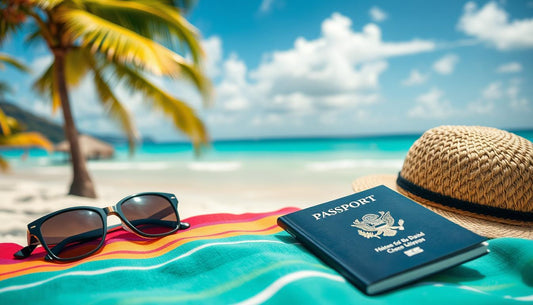Table of Contents
- Introduction to the Olympic Spirit
- History of the Olympic Games
- Evolution of the Olympic Spirit
- The Next Olympic Games: Anticipation and Preparation
- Cultural Significance of the Olympics
- Seamlessly Connected: Enhancing Your Olympic Experience with RapideSim
- Sportsmanship and Camaraderie at the Olympics
- Sustainability and Legacy of the Olympic Games
- Challenges and Controversies in Olympic History
- Future of the Olympic Movement
- Impact of the Olympic Spirit Beyond the Games
- Conclusion: Embracing the Olympic Spirit
Introduction to the Olympic
The Olympic Spirit embodies the ethos of fair play, perseverance, and excellence, serving as a beacon of inspiration for athletes and spectators alike. Rooted in ancient Greece, where the first Olympic Games were held in Olympia in 776 BCE, this tradition has evolved over centuries, culminating in the modern-day spectacle that captivates audiences worldwide.
History of the Olympic Games
Origins in Ancient Greece: In ancient Greece, the Olympics were more than just a sporting event; they were a religious festival honoring the god Zeus. Athletes from city-states across Greece would converge to compete in events ranging from running and wrestling to chariot racing and discus throwing.
Revival of the Modern Olympic Games: After centuries of dormancy, the Olympic Games were reborn in 1896 thanks to the vision of Pierre de Coubertin. The inaugural modern Olympics, held in Athens, marked the beginning of a new era of international sportsmanship and camaraderie.
Evolution of the Olympic Spirit
Values Upheld by the Olympics: The Olympic Games have come to represent core values such as friendship, respect, and excellence. Athletes pledge to uphold these principles, serving as ambassadors of goodwill for their respective nations.
Impact on Global Unity and Peace: In an increasingly divided world, the Olympics provide a rare opportunity for nations to set aside their differences and come together in the spirit of friendly competition. The Games serve as a reminder of our shared humanity, transcending cultural and political barriers.
The Next Olympic Games: Anticipation and Preparation
Host City Selection Process: The selection of a host city for the Olympic Games is a highly competitive and rigorous process overseen by the International Olympic Committee (IOC). Cities must demonstrate their ability to accommodate the influx of athletes, officials, and spectators while adhering to strict guidelines on infrastructure and sustainability.
Expectations for Upcoming Games: As the world eagerly awaits the next Olympic Games, anticipation runs high for what promises to be a showcase of athletic prowess and cultural exchange. Host cities spare no expense in preparing state-of-the-art venues and organizing elaborate opening ceremonies to welcome the world.
Cultural Significance of the Olympics
Celebrating Diversity and Inclusion: One of the hallmarks of the Olympic Games is their celebration of diversity and inclusion. Athletes from every corner of the globe, regardless of race, religion, or background, come together to compete on a level playing field, fostering mutual respect and understanding.
Showcasing Host Country's Culture: The Olympics offer host countries a unique opportunity to showcase their cultural heritage to a global audience. From traditional music and dance performances to culinary delights, the Games provide a platform for cultural exchange and appreciation.
Seamlessly Connected: Enhancing Your Olympic Experience with RAPIDESIM
Amidst the exhilaration of the Olympic Games, staying connected serves as the lifeline that enriches your experience. RapideSim becomes your indispensable companion, seamlessly integrating with your journey to ensure you're always in the loop.
- Stay connected during the Olympics: Whether you're cheering from the stadium or exploring the city's vibrant neighborhoods, RapideSim keeps you connected with real-time updates, scores, and event schedules.
- Navigating the Olympic host city: With intricate maps and navigation features, RapideSim guides you through the bustling streets and intricate transport networks of the host city, ensuring you never lose your way.
- Global connectivity for travelers: Traveling to the Olympics means crossing borders, but with RapideSim, you're equipped with global coverage, enabling seamless communication and access to essential services wherever your journey takes you.

Sportsmanship and Camaraderie at the Olympics
Athletes' Dedication and Perseverance: The road to the Olympics is paved with countless hours of training, sacrifice, and dedication. Athletes push themselves to the limit, overcoming obstacles and setbacks in pursuit of their Olympic dreams.
Uniting Nations Through Sportsmanship: Despite the fierce competition, the Olympics are also a celebration of sportsmanship and camaraderie. Athletes often display acts of kindness and solidarity, forging friendships that transcend national boundaries and rivalries.
Sustainability and Legacy of the Olympic Games
Environmental Initiatives: In recent years, the Olympic movement has placed a greater emphasis on sustainability and environmental stewardship. Host cities implement eco-friendly measures such as recycling programs, renewable energy sources, and green transportation options to minimize the Games' carbon footprint.
Long-Term Benefits for Host Cities: While the Olympics may last only a few weeks, their impact can be felt long after the closing ceremony. Host cities experience economic revitalization, improved infrastructure, and increased tourism, leaving behind a lasting legacy for future generations.
Challenges and Controversies in Olympic History
Political Boycotts: Throughout history, the Olympics have been marred by political boycotts and protests, with nations using the Games as a platform to advance their political agendas. These controversies underscore the delicate balance between sport and geopolitics.
Doping Scandals: The scourge of doping has cast a shadow over the Olympic movement, tarnishing the reputations of athletes and undermining the integrity of competition. Efforts to combat doping through stringent testing protocols and sanctions remain ongoing.
Future of the Olympic Movement
Adaptations to Modern Challenges: As the world continues to evolve, so too must the Olympic movement. Organizers must adapt to emerging challenges such as climate change, technological advancements, and shifting demographics to ensure the Games remain relevant and inclusive.
Embracing Innovation and Technology: From high-tech training facilities to cutting-edge broadcast technology, innovation plays a crucial role in shaping the future of the Olympics. Virtual reality, augmented reality, and esports offer new avenues for engagement and fan participation.
Impact of the Olympic Spirit Beyond the Games
Inspiring Youth Around the World: The Olympic Games inspire millions of young people to pursue their dreams, whether as athletes, coaches, or volunteers. The values of hard work, determination, and sportsmanship instilled by the Games serve as a guiding light for future generations.
Promoting Active Lifestyles and Sports Participation: Beyond the thrill of competition, the Olympics promote the importance of physical activity and healthy living. Initiatives such as the Olympic Day Run encourage people of all ages to embrace an active lifestyle and participate in sports.
Conclusion: Embracing the Olympic Spirit
As we embark on a journey through the next Olympic Games, let us embrace the Olympic spirit of unity, diversity, and excellence. In a world often divided by conflict and discord, the Games remind us of our shared humanity and the power of sport to bring us together.
FAQs
- How are host cities selected for the Olympic Games? Host cities are selected through a competitive bidding process overseen by the International Olympic Committee.
- What are the core values of the Olympic Games? The core values of the Olympics include friendship, respect, and excellence.
- What measures are taken to ensure the sustainability of the Olympics? Host cities implement eco-friendly initiatives such as recycling programs and renewable energy sources.
- How do the Olympics promote cultural exchange? The Olympics provide a platform for host countries to showcase their cultural heritage through music, dance, and cuisine.
- What role do athletes play in promoting peace and unity at the Olympics? Athletes serve as ambassadors of goodwill, fostering friendships and camaraderie that transcend national boundaries.












